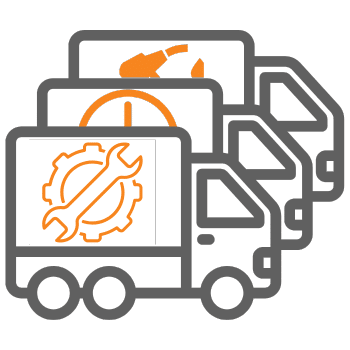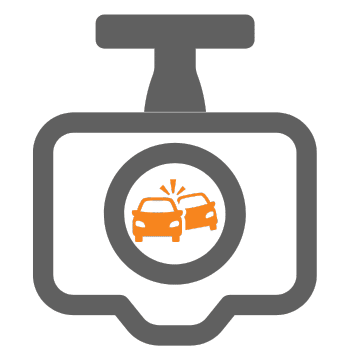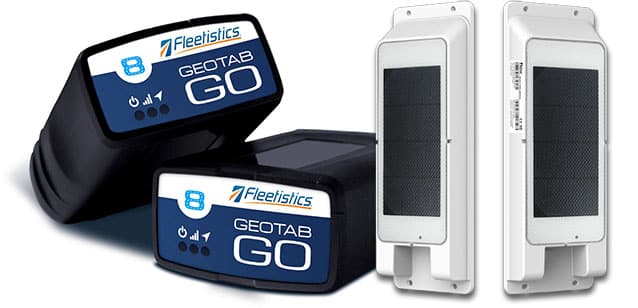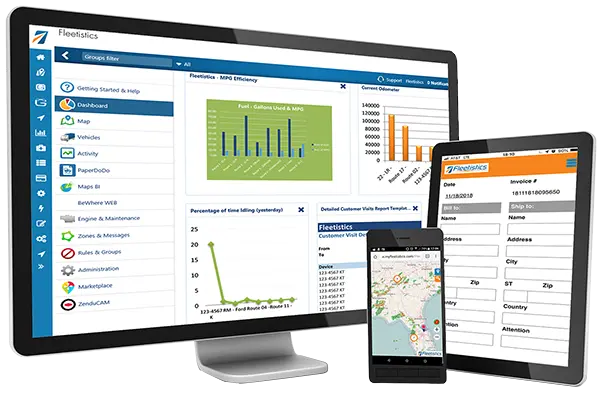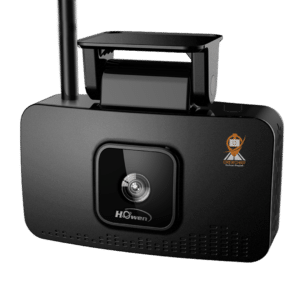Hardware Essentials for Fleet Optimization
To keep your fleet running efficiently and safely, it’s crucial to invest in the right hardware. Effective fleet management hardware can streamline operations, reduce costs, and enhance safety. Here, we explore the top five essential pieces of fleet hardware that can optimize your operations.
1. GPS Tracking Devices
Description: GPS tracking devices are fundamental to modern fleet management. They provide real-time location data, allowing fleet managers to monitor vehicle movements, optimize routes, and improve overall efficiency. GPS trackers are small devices installed in vehicles that communicate with satellites to provide precise location data.
Benefits:
- Enhanced Route Planning and Fuel Efficiency: With real-time location data, fleet managers can plan the most efficient routes, reducing fuel consumption and travel time. This not only saves money but also reduces the environmental impact of the fleet.
- Improved Driver Accountability: Knowing that their location is being tracked can encourage drivers to adhere to routes and schedules more strictly, reducing instances of unauthorized stops or detours.
- Real-Time Updates: GPS tracking devices provide real-time updates on vehicle location and status, allowing managers to respond quickly to any issues or changes in plans.
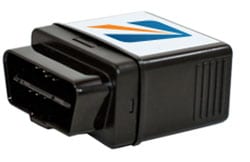
2. Telematics Systems
Description: Telematics systems combine GPS tracking with on-board diagnostics to provide detailed insights into vehicle performance and driver behavior. These systems collect data on speed, braking, fuel consumption, and more, enabling fleet managers to make data-driven decisions.
Benefits:
- Increased Safety: By monitoring driver behavior, such as speeding and harsh braking, fleet managers can identify risky driving patterns and take corrective actions. This helps in reducing accidents and improving overall safety.
- Reduced Maintenance Costs: Telematics systems can provide predictive maintenance alerts based on vehicle diagnostics. This allows for timely maintenance, preventing costly breakdowns and extending the lifespan of vehicles.
- Better Fuel Management: Detailed insights into fuel consumption help identify inefficient driving habits and vehicle issues that may be causing excessive fuel use, leading to significant cost savings.
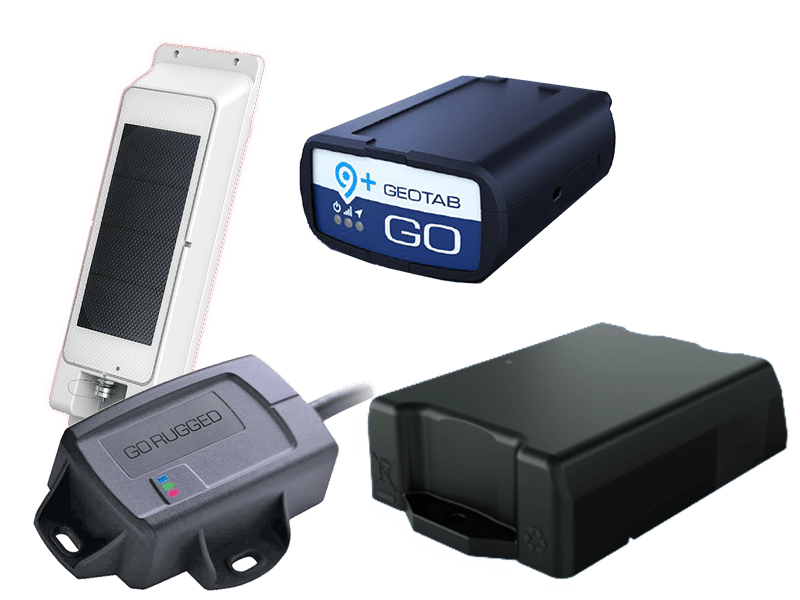
3. Dashboard Cameras (Dashcams)
Description: Dashcams are increasingly popular for their ability to record video footage from the driver’s perspective. This footage can be invaluable for resolving disputes, training drivers, and enhancing security. Dashcams are typically mounted on the windshield and can record both the road ahead and the vehicle’s interior.
Benefits:
- Evidence Collection: In case of accidents or disputes, dashcam footage provides clear evidence of what happened, protecting drivers from false claims and aiding in insurance settlements.
- Driver Training: Dashcam footage can be used to review and improve driver performance. By analyzing the footage, managers can provide targeted feedback and training to drivers.
- Theft Prevention and Recovery: Dashcams can deter theft and vandalism, and in the event of a theft, the recorded footage can assist in recovering the vehicle and identifying the perpetrators.
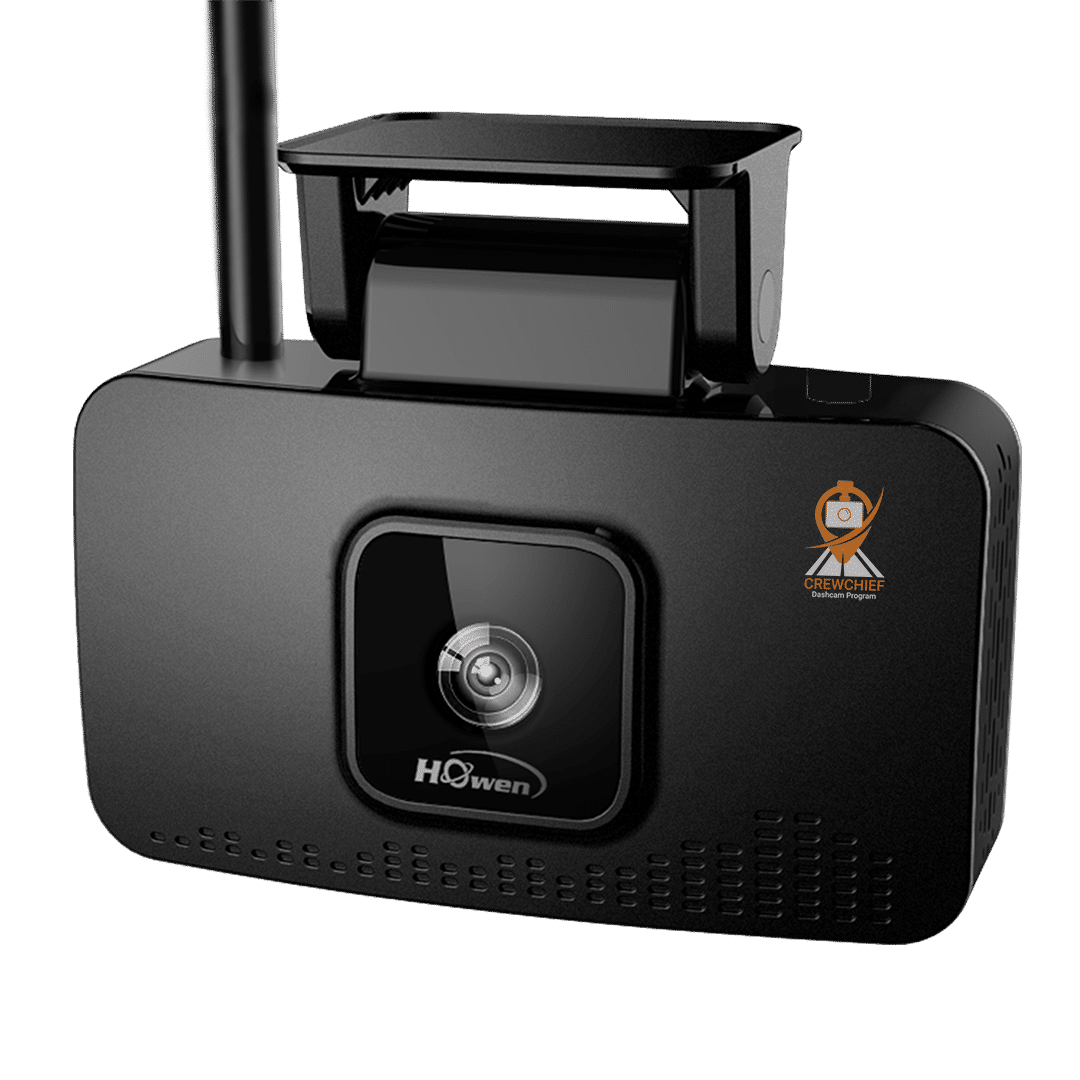
4. Electronic Logging Devices (ELDs)
Description: ELDs are mandated in many regions to ensure compliance with Hours of Service (HOS) regulations. They automatically record driving time and help prevent driver fatigue by ensuring that drivers take necessary rest breaks. ELDs are typically connected to the vehicle’s engine and log data automatically.
Benefits:
- Compliance with Legal Requirements: ELDs ensure that drivers comply with HOS regulations, reducing the risk of fines and penalties for non-compliance.
- Reduction in Paperwork: By automating the logging process, ELDs reduce the need for manual record-keeping, saving time and reducing administrative tasks.
- Enhanced Accuracy: Automated logging is more accurate than manual methods, reducing errors and disputes related to driving hours.
5. Asset Trackers
Description: Asset trackers are essential for monitoring non-vehicle assets such as trailers, containers, and heavy equipment. These devices ensure that valuable assets are always accounted for and secure. Asset trackers can be attached to various types of equipment and provide location data and status updates.
Benefits:
- Real-Time Asset Location Tracking: Asset trackers provide real-time updates on the location of non-vehicle assets, making it easy to manage and allocate resources efficiently.
- Prevention of Theft and Loss: By tracking the location of assets, fleet managers can quickly detect and respond to any unauthorized movements, reducing the risk of theft and loss.
- Improved Asset Utilization: Knowing the exact location and status of assets allows for better utilization and logistics management, ensuring that equipment is used effectively and not left idle.
Conclusion
Investing in the right fleet management hardware is crucial for optimizing operations, enhancing safety, and ensuring compliance. By integrating these top five hardware essentials—GPS tracking devices, telematics systems, dashcams, ELDs, and asset trackers—fleet managers can significantly improve efficiency, reduce costs, and maintain a competitive edge. Embracing these technologies will not only streamline operations but also provide peace of mind, knowing that your fleet is well-monitored and managed.
Get industry tips and insights
Sign up for monthly news and tips from our award-winning fleet management blog. You can unsubscribe at any time.
